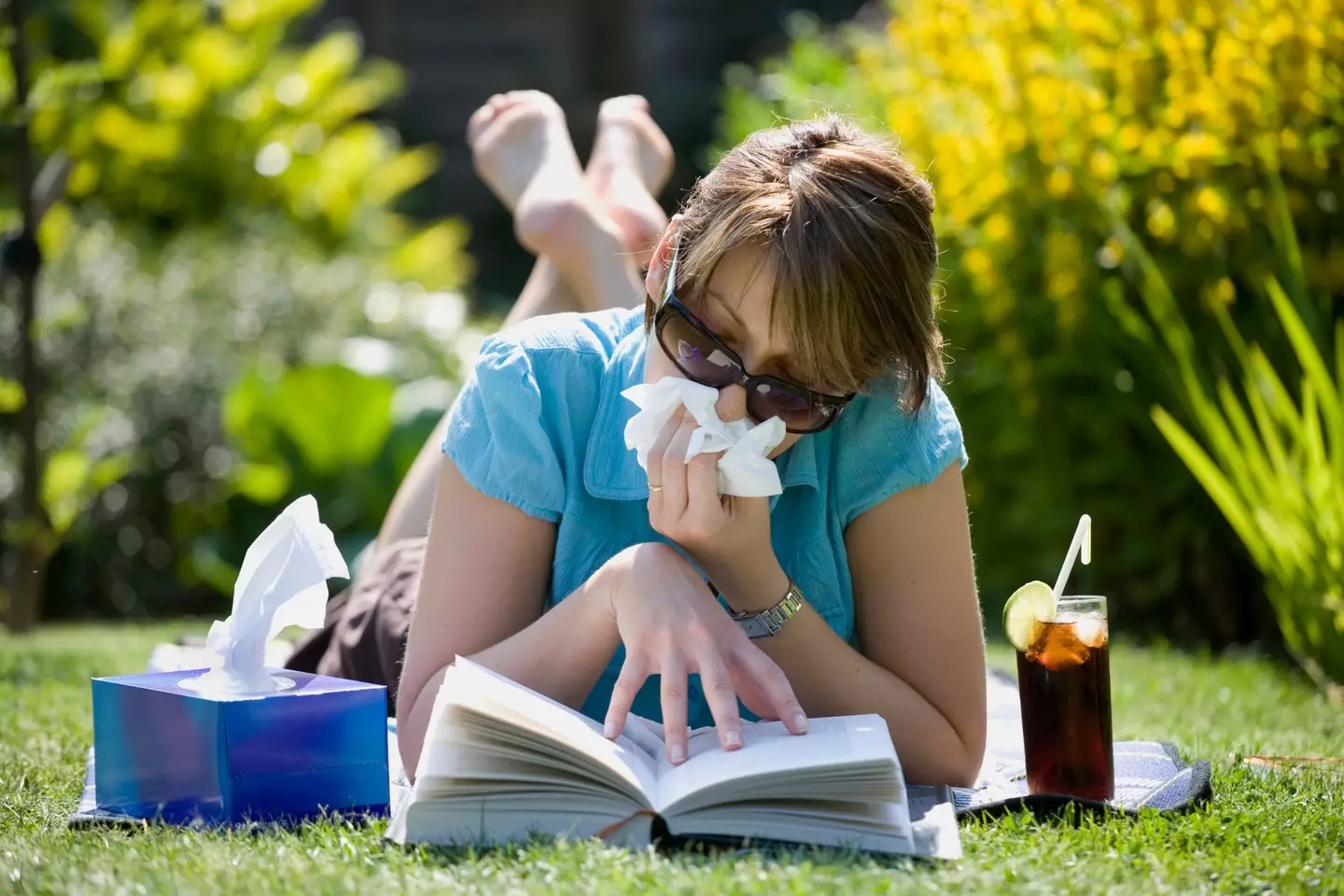
There's a new Covid strain which could be mistaken for hay fever, according to a doctor.
It may not be enough to send us into another lockdown, but a new Covid strain has swept across the country in recent weeks. It's coincided with the long-dreaded hay fever season too, so while Brits may be putting the symptoms down to allergies, it could be the sign of the infectious disease and its new strain.
While people might be confused over the differences between the two, the health news comes after the Met Office reported high pollen levels across the UK.
The number of Covid-related hospital admissions has also increased by almost 10 percent.
Advert
You might assume that this will be in more rural areas, but Birmingham, London, and Manchester have been hit more than others.

What is the new Covid variant?
The newest variant has been called 'Nimbus', known scientifically as NB.1.8.1, and according to the NHS, nearly 950 people were admitted to hospital with the disease in the last week of May.
Described by the World Health Organisation as a 'variant under monitoring', they noted that available data shows that the strain is more severe that variants that were in circulation.
Work is still being done to determine whether it is more contagious, as it is a close descendant of previous strains, having mutated from omicron.
What are the similarities between Covid and hay fever?
Both hay fever and Covid-19 can show symptoms of sneezing, a runny nose, headaches, or a loss of smell. Obviously, the difference here is one is caused by allergies, and the other by a viral infection that could leave you bed-ridden for days.

Bupa's Associate Clinical Director, Dr Luke Powles, told The Sun that while hay fever is more common in summer months, symptoms can linger from March to September.
He added: "This can make it harder to tell if sniffs and sneezes are being caused by an allergy or an infection such as coronavirus."
How can you tell the difference?
It's simple - keep a feel for a high temperature as this is consistent with Covid symptoms, but not with hay fever.
A fever can be defined as feeling 'hot to touch on your chest or back' according to the NHS, with no temperature measurement necessary.
Dr Powles clarified that it isn't likely for you to get a high temperature due to hay fever, while 'completely losing your ability to taste or smell is more likely to result from coronavirus'.

He pointed out that Covid can make you feel drained and exhausted, while hay fever symptoms are mild and 'aren't usually serious'.
As we were told years ago, Covid can have long-term effects, with symptoms lasting weeks, or sometimes months, it what is now known as 'long Covid'.
This can result in nausea, vomiting, or even diarrhoea, while fatigue and body aches/chills are more Covid symptoms.
If you're unsure, experts have urged the public to be cautious and remind Brits that lateral flow tests are still available at a number of pharmacies, which can help to determine if you have Covid or not.
A spokesperson for the NHS told the publication: "If you're unsure whether you're suffering from hay fever or Covid, it's wise to limit contact with others, especially those who are vulnerable."